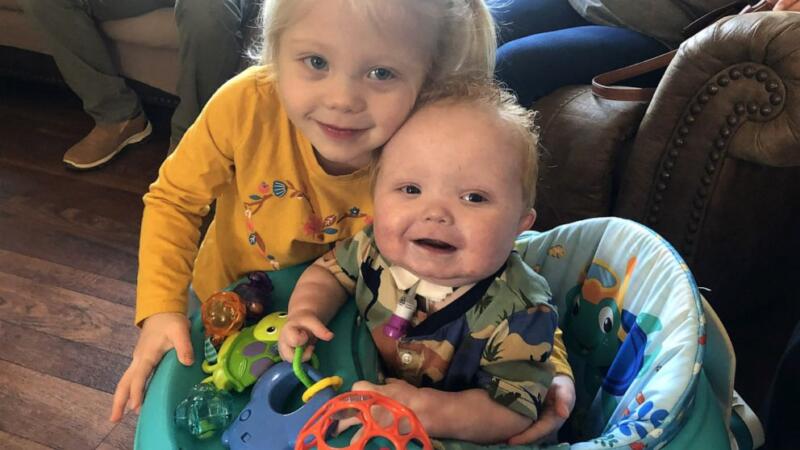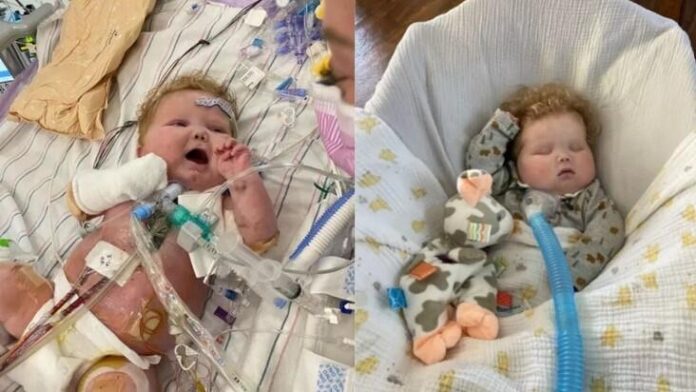A baby has made medical history by becoming the first recipient of both a heart and thymus transplant together. The combination may herald the end of anti rejection drugs for transplant recipients. Easton Sinnamon, from North Carolina, USA, was born with both a heart defect and a thymus condition. Easton’s heart condition was so severe that at five days old he had open heart-surgery. Despite the surgery, Easton still required a heart transplant. At the same time his thymus condition meant that a thymus transplant would also be necessary. Easton had so far been treated at Duke University Hospital, one of the leading research facilities in the country. Amazingly, doctors at Duke University had also been studying the idea of a combined heart and thymus transplant.
“We thought, if we did a thymus and heart transplant on Easton, there’s a potential that taking that from the same donor will allow that transplanted heart to be recognized as self,” Dr Joseph Turek, chief of pediatric surgery at Duke commented. A donor was found and matched with Easton for both the thymus gland and a heart. He received the heart transplant in August 2021, followed two weeks later by a thymus transplant.
Revolutionary method
The combination of both a heart and thymus transplant has doctors hoping that lifelong anti-rejection drugs may not be needed. The thymus is a gland that sits at the top of the chest. Its job is to train the immune system to recognize its own tissues, and to kill foreign invaders. The immune system, however, recognizes transplanted organs as foreign invaders. Currently, recipients of donor organs must take immunosuppressive drugs for life. Because immunosuppressants can have long-term damaging effects, the lifespan of an organ is greatly reduced. A heart transplant typically lasts only 10-15 years. Easton’s combined transplant is seen as a possible pioneer for future transplants- one where medication is not needed.

Tests taken nearly six months after the transplant show that the transplanted thymus has started to produce immune cells called T-cells. Doctors are now planning to taper Easton off the immunosuppressants to see if his immune system accepts his new heart. Easton’s mother, Kaitlyn Sinnamon, hopes her son’s experiences can help others in future.
“We not only were able to be given the gift to have our son back, but we were also able to give the gift of this possibility with the thymus, to help expand this for other children that are going through the same thing.”
Easton is now living at home with his parents and older sister and continues to improve every day.
“Even through all he went through, he’s one of the happiest babies I’ve ever seen,” his mother said.

